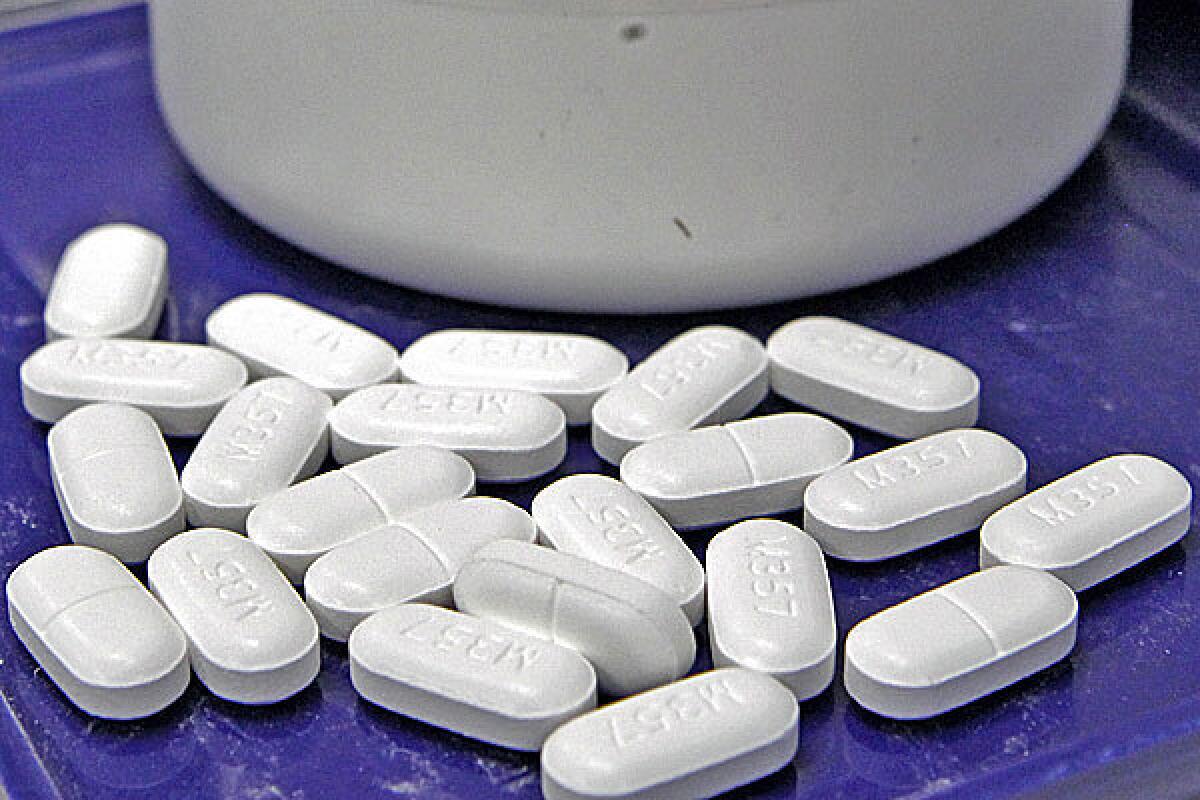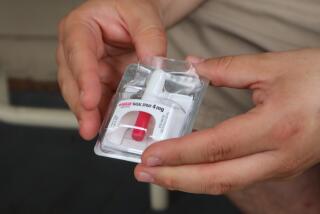Bill aims to tighten restrictions on painkiller hydrocodone

Taking aim at “America’s most abused narcotic,” congressional lawmakers introduced legislation Wednesday that would place tighter restrictions on the painkiller hydrocodone, which is a key contributor to the nation’s prescription drug death epidemic.
Sold under the brand names Vicodin, Norco and Lortab, hydrocodone-based medications “are some of the most potent and addictive narcotics on the market,” U.S. Rep. Vern Buchanan (R-Fla.) said in a statement.
Buchanan is one of four lawmakers — two Republicans and two Democrats — who introduced the Safe Prescribing Act of 2013. The unusual display of bipartisan support extended to more than 40 additional members of Congress from both parties who signed on as co-sponsors.
Full coverage: Legal drugs, deadly outcomes
Prescription drugs — primarily narcotic painkillers such as hydrocodone — cause or contribute to more deaths than heroin and cocaine combined. As a result, drug fatalities have surpassed deaths from motor vehicle crashes, long the leading cause of accidental death in this country. A Los Angeles Times analysis of 3,733 prescription drug-related fatalities in Southern California from 2006 through 2011 found that hydrocodone was involved in 945 of the deaths, more than any other prescription medication.
Buchanan’s decision to seek legislation was motivated, in part, by a series of Times reports. The Dying for Relief series revealed that nearly half the prescription drug deaths in Southern California over a six-year period involved at least one drug that had been prescribed to the decedent by a physician. Seventy-one doctors prescribed drugs to three or more patients who later fatally overdosed. Several of the doctors lost a dozen or more patients to overdoses.
The proposed law would place medications containing hydrocodone in same category as OxyContin, another opiate-based painkiller so potent and addictive that it’s sometimes referred to as synthetic heroin. If enacted, patients would be prescribed fewer hydrocodone pills at one time, and there would be more restrictions on refills. In addition, pharmacies would have to follow stricter procedures for handling and storing the drug.
The restrictions follow those recommended by a Food and Drug Administration advisory panel in January.
Buchanan and his colleagues — Rep. Edward J. Markey (D-Mass.), Sen. Joe Manchin III (D-W.Va.) and Sen. Mark Steven Kirk (R-Ill.) — submitted endorsements for their legislation from police, prosecutors and medical experts who said that the potency and addictive nature of hydrocodone were underestimated when the drug was classified under the Controlled Substances Act in the 1970s.
The United States consumes 99% of the hydrocodone produced worldwide, and doctors write more prescriptions for it than for the leading antibiotic and hypertension medications.
Doctors have prescribed hydrocodone with few restrictions since it was introduced four decades ago. Because of the perception that it is less risky than other narcotic painkillers, it is widely prescribed by general practitioners and dentists.
Under federal law, hydrocodone is treated as if it has one-sixth the potency of morphine, though they are equally powerful, wrote Andrew Kolodny, president of the group Physicians for Responsible Opioid Prescribing.
“Correcting the mistake made 40 years ago … is one of the single most important things the federal government can do to help bring the epidemic of opioid addiction and overdose deaths under control,” Kolodny wrote.
Lynn Webster, president-elect of the American Academy of Pain Medicine, said any change in the way hydrocodone is regulated should be made with caution and any signs of unforeseen problems — such as patients unable to get pain treatment or adverse side effects from drugs that doctors may prescribe instead of hydrocodone — should be closely monitored.
“We recognize that there is a huge national problem with prescription drugs, and hydrocodone is the No. 1 drug of abuse in the country,” Webster said in an interview. “We need to do something different because what we’re doing is not working. However, we are concerned that we don’t really know what unintended consequences may occur from the rescheduling.”
Full coverage: Legal drugs, deadly outcomes
More to Read
Sign up for Essential California
The most important California stories and recommendations in your inbox every morning.
You may occasionally receive promotional content from the Los Angeles Times.












